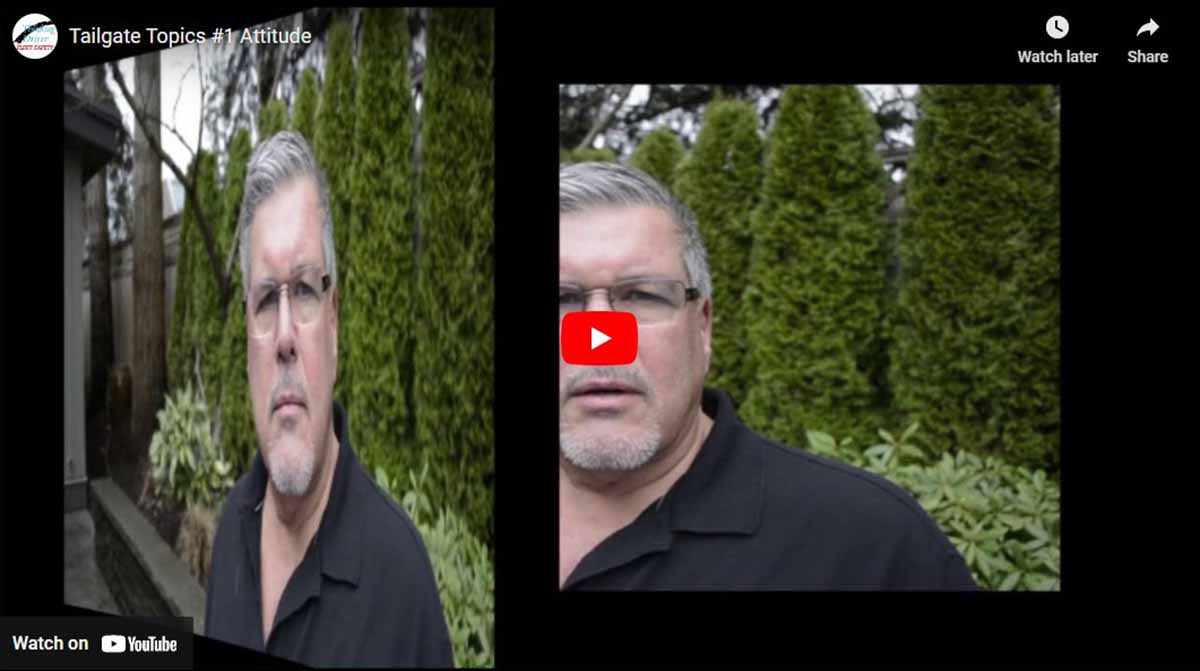Safety Meeting Planner & Agenda
Check Your Attitude at the Door!
Meeting Leader:
- Prepare in advance to make this meeting effective.
- Print and read over this entire agenda.
- Think about how you want to lead the meeting.
- Is there anything that is specific to your company or operation that you can include to personalize the information?
- Review the video for this session.
- Save the link to the video in your ‘Favourites’ folder on your browser for easy access.
- Open and then minimize the viewer just before the meeting to make the video introduction smooth.
Start Your Meeting!
Opening Statement:
Even the best drivers can let their driving deteriorate when their attitude starts to slide.
The Questions for this Meeting:
Q: What attitudes can turn a normally good driver into a risk-taking one?
Answers:
- A feeling that everyone is out to get me or hold me up.
- Judgements about other driver’s actions “everyone else is a lousy driver” that leads to frustration.
- Angry feelings that may have no connection with driving until you are behind the wheel like a fight with the boss or spouse or kids or co-worker.
- A need to be right or “win” in a situation.
- Can you think of more?
These things are called personal factors and they influence our driving behaviour if we let them.
Attitudes are a combination of what we are thinking and feeling. These are things that we have control over at least to some degree. Someone who regularly cultivates strong negative feelings and thinking including anger and blame will often have what is called a bad attitude but this is just a reflection of their emotional state.
Q: What kind of driving behaviour can result from negative attitudes?
Answers:
- Aggressive driving like speeding or cutting others off.
- Retaliation and road rage
- Vehicle abuse
- What others?
Taking personal responsibility for our thinking, feelings and attitudes is a key to safe vehicle operation. When you are behind the wheel, it’s your responsibility to drive defensively regardless of the pressure that may invite you towards negative thinking and emotion.
Tailgate Tips:
- If you believe yourself to be a good driver, realize that most others are not as skilled as you and give them a break! Don’t expect perfection: in fact, expect poor driving from others and take the high road by not reacting negatively.
- Remind yourself about everything that you have to be grateful for in life. It sounds simplistic but if we forget that we have so much to be grateful for, and start focusing on the negatives, we can easily get caught up in an attitude slide.
- Give the other guy a break regularly and make sure that if someone gives you a break to return a friendly wave.
- Remind yourself regularly that you are in control of your emotional weather and that it’s your thinking that most determines if you have a sunny disposition or a stormy one!
Introduce the Video:
Spencer McDonald discusses the importance of keeping your attitude in check while driving.
Practical Challenge:
For the next week, check your attitude and see if you can shift it in a positive direction by thinking positively about just about anything. The easiest thing is to just think about everything that you can be grateful for in life. Notice that choosing your thoughts really does shift your attitude towards everything including driving!









